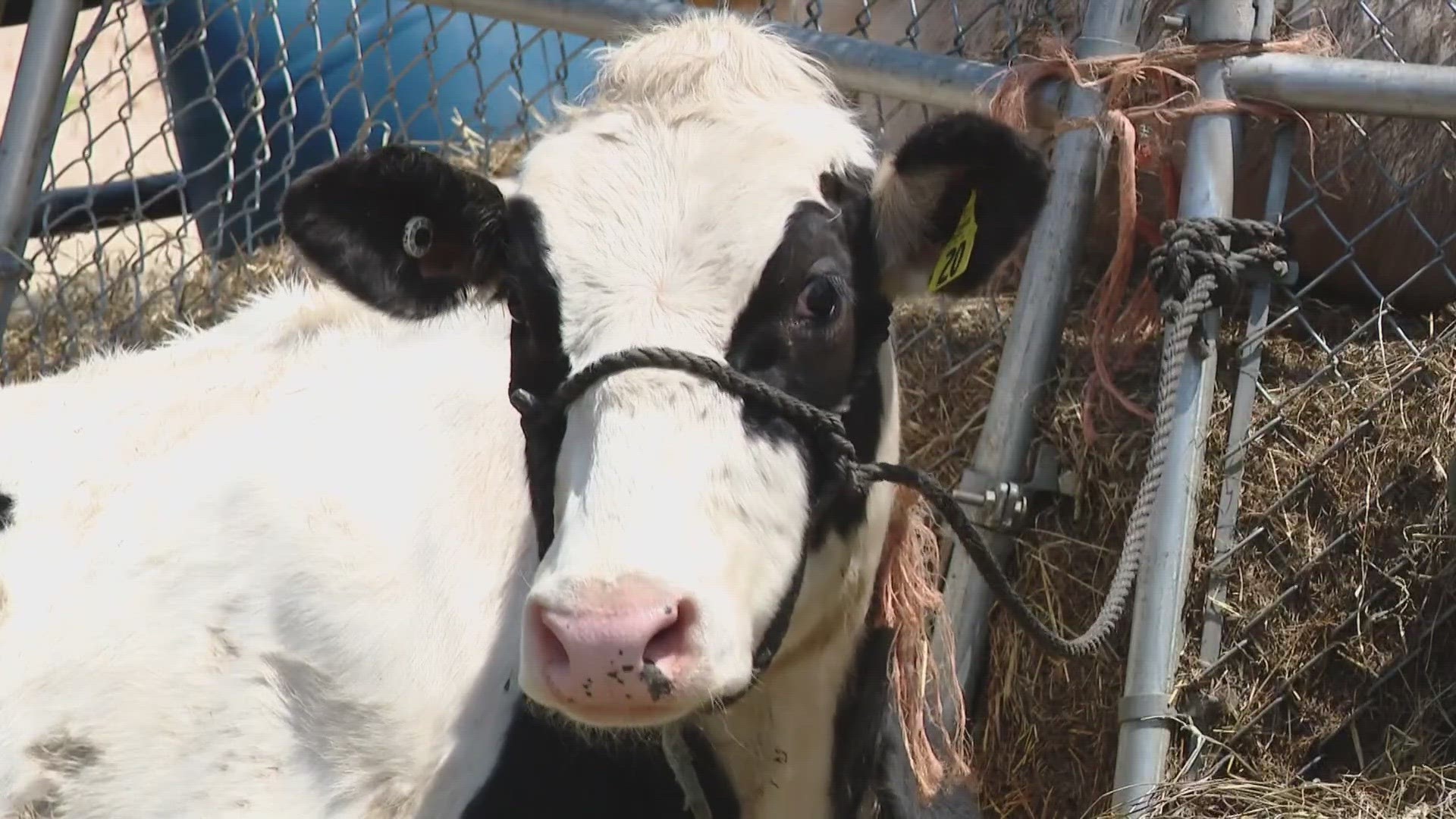ARUNDEL, Maine — A state fund set up to help Maine farmers dealing with PFAS has a higher price tag than the 60 million dollars approved last year by lawmakers and Governor Janet Mills.
The PFAS fund hasn't distributed any money yet, but an advisory panel says roughly $80.5 million is needed over the next five years to address a growing toxic crisis.
A state-wide investigation into PFAS contamination has revealed more than 50 Maine farms are dealing with the aftermath. The source of contamination is municipal and industrial sludge, hauled to hundreds of Maine farms and spread as free fertilizer for decades.
Adam Nordell gets a little emotional when he talked about his organic grain farm, Songbird Farm, which he started with his wife Johanna Davis.
"It's so sad and it's a beautiful property, we poured our work, blood, sweat, and our tears," Nordell said.
The couple who has a 5-year-old son, pulled products from the shelves and shuttered the farm last year after high levels of PFAS were discovered in their produce, soil, and drinking water.
But he's hopeful the $60 million fund established last year by the Legislature and Gov. Janet Mills will help his family move forward. The fund will go to buying out contaminated land, helping farms transition to new forms of production to paying for blood testing, screenings, and health monitoring for farmers, private landowners, families, and workers impacted by PFAS contamination.
Half a million dollars will go a conducting a study utilizing blood donations to reduce levels of toxic PFAS chemicals in the blood.
"Such a study could follow these participants over time for a long enough period, to see if they have a faster reduction of PFAS levels," Isaac Benowitz, an epidemiologist at the Maine CDC, said.
"That possibility feels like the light at the end of a very dark tunnel," Nordell said.
The advisory committee now says the fund needs an additional 20.5 million dollars to address the widespread crisis over the next five years. For Arundel dairy farmer Fred Stone, who first sounded the alarm about PFAS, the fund will be key to helping bring back his more than century-old dairy farm on a much smaller scale.
Since January, Fred has been dumping the milk of 40 of his Brown Swiss and Holstein cows, which have elevated levels of PFAS. Every other month the cow's blood and milk are tested by state agriculture officials. That process has decreased the PFAS load levels in the herd by half, and Fred hopes to have the cow's milk and levels at non-detect for PFAS in about a year.
"We'll have a certificate that says the cows are clean, we can merchandise them and do whatever we want at that period of time," Stone explained.
The longtime farmer could eventually open a micro-dairy and sell gourmet ice cream and other products, which he said would possibly be operated by a new generation of farmers.
A public hearing on the final plan is set for June 12. Finalizing a plan to begin distribution of the funds is expected in July.

